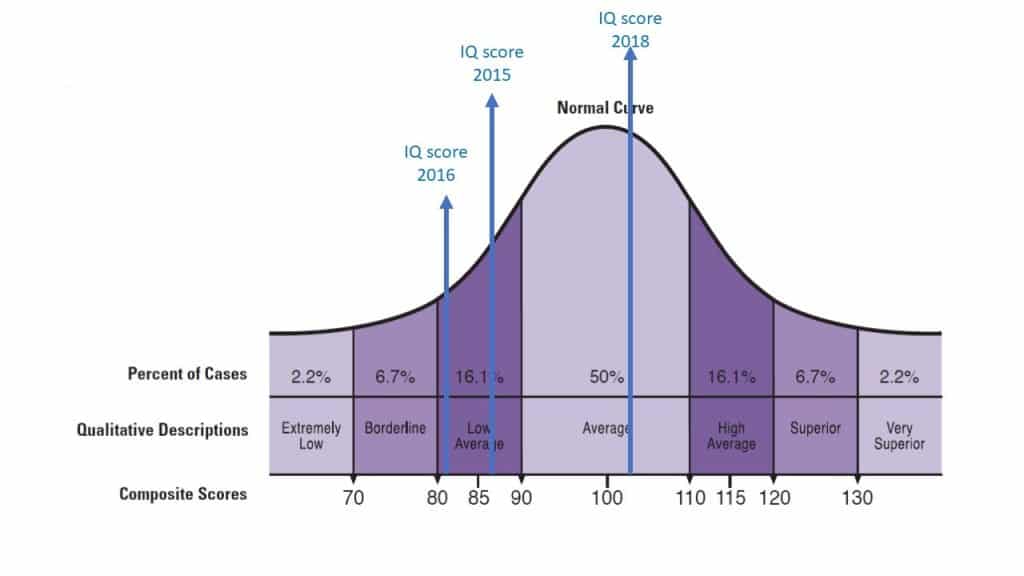
Slow learner is a term that is sometimes used for low-ability students with an IQ between 70 and 85. These individuals make up approximately 14.1% of the population, larger than the group of children with learning disabilities, intellectual disabilities, and autism combined.
Yet, for this extremely large and vitally important population, research is scarce and getting harder to find every year.
Characteristics of slow learners
- They learned to walk and talk but seemed delayed and slower than other children
- They have trouble academically in kindergarten, and thereafter, they fall further behind every year
- Slow learners may seem immature for their age
- They like playing with other children but prefer playing with children who are younger than them
- They make friends, but friendships don’t seem to last
- When they carry on a conversation, they have trouble coming to the point
- They frequently say “off the wall” things that have nothing to do with the rest of the conversation
- When they become teenagers, they may want to be treated as adults, but think and act several years younger than their peers
- They have short attention spans
- They study but can’t seem to retain what they learn
- They have difficulty following multi-step directions
- They score consistently low on achievement tests, however, they may work well with hands-on material
- They try hard but can’t keep up with their classmates
- Slow learners are generally weak in reading and writing
- They often lack self-esteem
- They need support and encouragement to maintain their interest
- They tend to live in the present and do not have long-range goals
- They were recommended for special education, but didn’t qualify
.
“Slow learners account for a disproportionate number of school dropouts, unwed teen mothers, illicit drug users, functionally illiterate persons, incarcerated persons, unemployed, underemployed, violent offenders, alcohol abusers, school failures, low scorers on group tests, and gang and hate group members,” says Lourene Williams-Medlow in her book Turning I can’t into I can.
In other words, slow learners can disproportionately account for nearly every major problem within education and society.
Challenged by a lack of services
Slow learners are rarely eligible for special education programs or community services, even though they frequently lack the skills to succeed in school or general society. There are few large-scale innovative educational or mental health programs for this group of students.
Special education services are provided for students who have a disability. Slow learners typically do not have the diagnosis of a disability, even though they need extra support. They are stuck between a rock and a hard place: their cognitive abilities are too high to be considered for an intellectual disability, but their cognitive abilities are usually too low to be considered for a learning disability.
Personally, I dislike the term “slow learner.” Labeling children as ‘slow’ is telling them they are not as good as others. We should never forget that every child is unique in their own way. “Slow learners” are merely children who need extra help and specialized teaching to allow them to learn and grow. Instead of labeling, we should be helping.
How Edublox can help slow learners
Edublox is an educational method that integrates cognitive skills training, reading or math tutoring, and solid learning principles. Cognitive skills can be considered a person’s tools for learning. With the right tools, one can complete tasks with ease and efficiency.
Edublox is suitable for slow learners, assisting them to become life-long learners and empowering them to realize their highest educational goals.
Below is a graphic presentation of a student who did two IQ tests before she enrolled in the Edublox program (2015 and 2016) and one after she did Edublox intensively for approximately nine months (2018). Compared to the assessment in September 2015, this student’s IQ score increased by 16 points and compared to the evaluation in September 2016 by 22 IQ points.
This example — like many others — confirms that IQ is not a fixed quantity but can increase through education.


